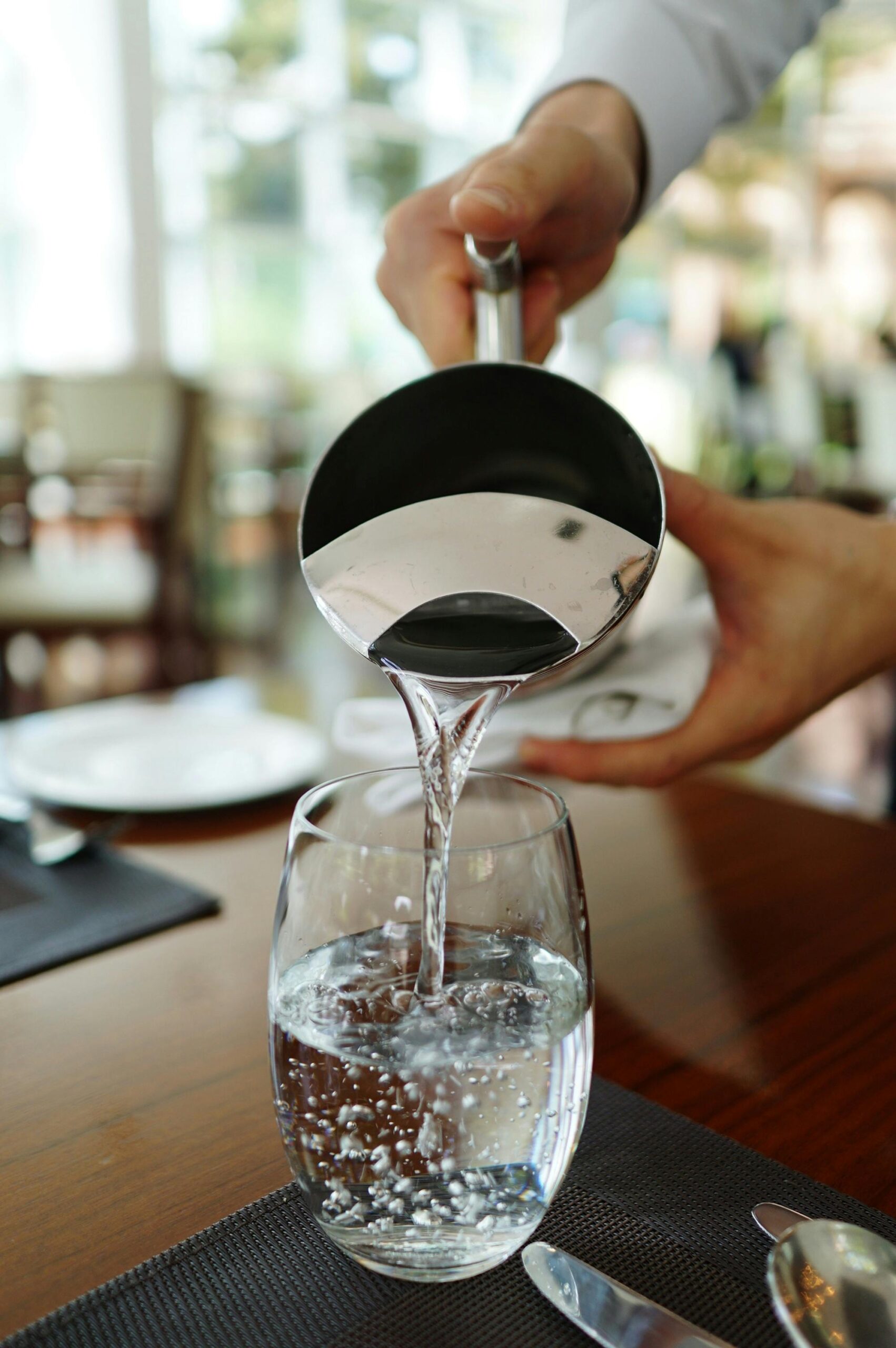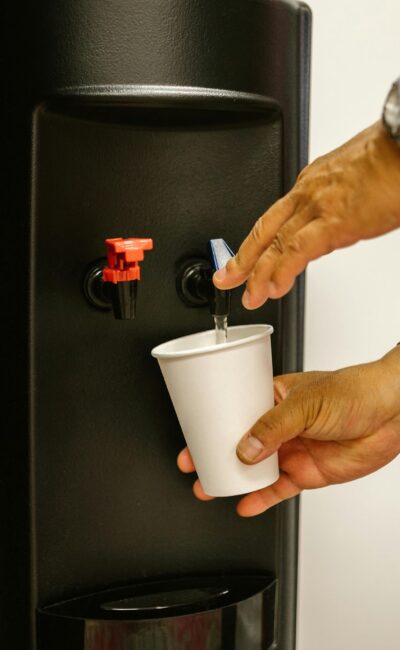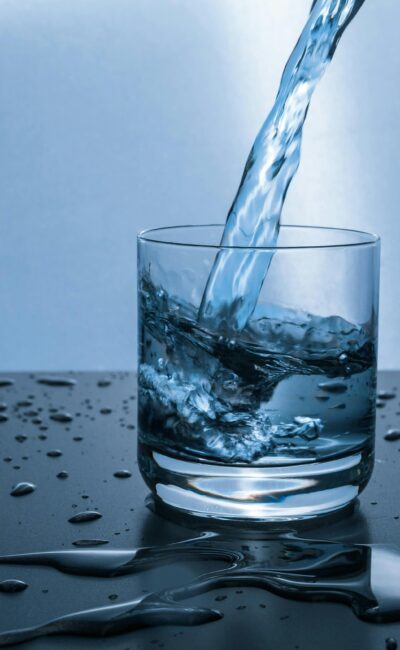Staying hydrated is crucial for overall health, but there’s more to hydration than just drinking water. Electrolytes, essential minerals like sodium, potassium, calcium, and magnesium, play a significant role in maintaining proper hydration and supporting various bodily functions. Most people get enough electrolytes through a balanced diet and should focus mainly on maintaining hydration through clean filtered water, but there are cases when any of us might be depleted, and electrolytes can be vital for proper hydration. Without them, your body may struggle to regulate fluid balance, leading to dehydration and other issues.
What Are Electrolytes, and Why Are They Important?
Electrolytes are minerals that carry an electric charge and are essential for many bodily processes, including:
- Fluid balance: Electrolytes help regulate the movement of water between cells and tissues, ensuring you stay properly hydrated.
- Muscle function: They enable muscles to contract and relax properly, making them essential for daily activities and exercise.
- Nerve function: Electrolytes transmit signals between nerve cells, which is crucial for brain function and communication with the rest of the body.
- Acid-base balance: They help maintain the body’s pH levels within a healthy range.
When you sweat, urinate, or lose fluids through illness, you also lose electrolytes. This is why replenishing them, especially during exercise or in hot weather, is essential for staying hydrated and preventing symptoms like fatigue, muscle cramps, and even headaches.
Easy and Optimal Methods to Add Electrolytes to Water at Home
While there are many pre-made electrolyte drinks available, they can often be loaded with sugar or artificial ingredients. Instead, you can easily make your own electrolyte water at home using natural, wholesome ingredients. Here are some simple and optimal methods:
1. Use a Pinch of Himalayan or Sea Salt
Sodium is one of the primary electrolytes, and adding a small pinch of Himalayan pink salt or sea salt to your water can provide a natural source of it. These types of salt also contain trace amounts of other minerals like potassium and magnesium, further enhancing your electrolyte intake.
How to do it:
- Add a small pinch (1/8 teaspoon) of Himalayan or sea salt to 1 liter (about 4 cups) of water.
- Stir well until dissolved.
Tip: Taste-test your water to ensure the salt level is comfortable. You don’t want it to be overly salty—just enough to balance your body’s needs.
2. Add Fresh Lemon or Lime Juice
Citrus fruits like lemon and lime are rich in potassium, an essential electrolyte that helps regulate fluid balance, muscle contractions, and nerve signals. Freshly squeezed lemon or lime juice also adds a refreshing taste to your water.
How to do it:
- Squeeze the juice of half a lemon or lime into your water.
- Add a pinch of sea salt for added sodium and trace minerals.
This simple combination not only boosts electrolytes but also adds a tangy, refreshing flavor that can encourage you to drink more water.
3. Use Coconut Water
Coconut water is a natural source of potassium, sodium, calcium, and magnesium, making it an excellent base for homemade electrolyte drinks. You can mix it with regular water to dilute the taste while still getting the benefits of its natural electrolyte content.
How to do it:
- Mix half a cup of coconut water with half a cup of regular water.
- Add a pinch of sea salt if you need additional sodium for high-intensity exercise or after sweating.
Coconut water is especially useful for athletes or during periods of intense physical activity when you need a higher intake of potassium.
4. DIY Electrolyte Powder
Making your own electrolyte powder is an easy way to control exactly what goes into your drink, avoiding unnecessary sugars and artificial additives. You can make a batch and store it for convenience.
How to do it:
- Mix ¼ teaspoon of Himalayan or sea salt with ¼ teaspoon of baking soda (a natural source of sodium bicarbonate).
- Add ½ teaspoon of a powdered magnesium supplement (like magnesium citrate).
- Add 2 tablespoons of cream of tartar for potassium.
- Stir the mixture into 1 liter of water when needed.
This DIY powder is simple to make, and you can adjust the ratios to fit your personal needs or taste preferences.
5. Add Electrolyte Tablets
Electrolyte tablets are another convenient and precise way to add these minerals to your water. They’re available in various flavors and formulations, often designed for athletes or those needing rapid rehydration.
How to do it:
- Simply drop a tablet into your water, and let it dissolve completely before drinking.
Most electrolyte tablets are formulated to provide an optimal balance of sodium, potassium, and magnesium, making them an easy solution for quick hydration.
When Should You Add Electrolytes?
As mentioned, most people get enough electrolytes through a balanced diet. However, there are times when supplementing with electrolyte water can be beneficial:
- During exercise: Especially if you’re sweating heavily, replacing lost electrolytes can prevent dehydration and muscle cramps.
- In hot climates: If you’re spending time outdoors in the heat or sweating more than usual, replenishing electrolytes helps keep your body functioning properly.
- When you’re sick: Vomiting, diarrhea, and fever can lead to a loss of both fluids and electrolytes. Drinking electrolyte water helps restore balance and prevent dehydration. Plus, drinking enough water is known to boost your immune system and help prevent you from getting sick in the future.
- After alcohol consumption: Alcohol can dehydrate your body, so replenishing electrolytes can help you recover more quickly. Drinking plenty of filtered water and getting electrolytes the same night you drink is your best defense against the dreaded hangover!
Final Thoughts
Adding electrolytes to your water doesn’t have to be complicated or expensive. By using natural ingredients like salt, citrus, and coconut water, or creating your own electrolyte powders, you can easily boost your hydration and keep your body’s systems running smoothly. The next time you’re reaching for a glass of water, consider adding electrolytes to enhance your hydration and support overall well-being.
Stay hydrated, stay healthy!




